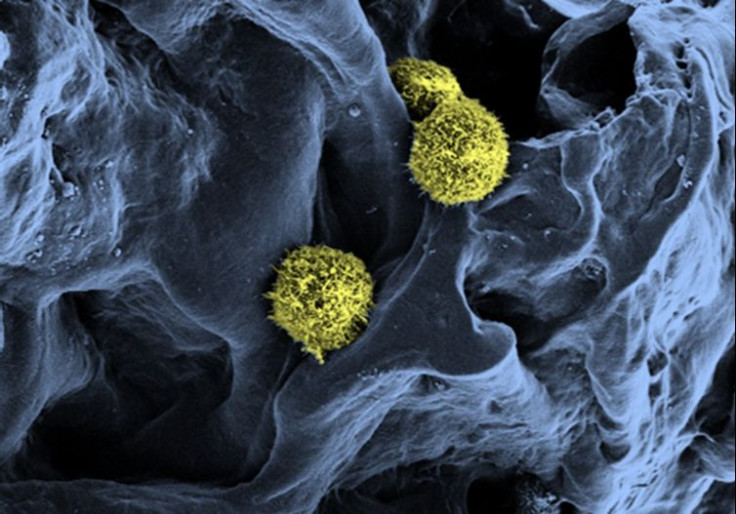Artificial Bone Marrow Created By German Scientists, Could Be Used To Treat Leukemia Someday

German researchers have created a prototype for an artificial kind of bone marrow that can function as a stem-cell nursery. The material, described in the January issue of the journal Biomaterials, could eventually make it easier to treat leukemia.
Bone marrow nurtures both red blood cells and white blood cells, with healthy people producing more than 500 billion red- and-white blood cells every day. But when bone marrow is damaged by a disease like leukemia, or by radiation or chemotherapy drugs, the supply of blood cells drops, leaving a person at risk for fatal infections.
Leukemia and other types of bone-marrow diseases are often treated by transplanting healthy “hematopoietic” stem cells, which can develop into various kinds of blood cells, from another person. The donor cells can be taken from another person’s bone marrow or bloodstream, or from preserved umbilical cords and placentas. But finding a matching donor can be difficult, and the amount of stem cells harvested from the donor may not always be enough to meet the needs of the patient.
One thing that doctors want to be able to do is to find a way to cultivate a bumper crop of stem cells. But blood stem cells thrive in a very specific environment – inside bone marrow. And bone marrow has a very complex architecture, like a tiny sponge that contains many sizes of pores, and special docking proteins for stem cells.
"We assume that stem cells [do] not only notice the chemical composition of their surroundings.,” Karlsruhe Institute of Technology researcher and co-author of the study Cornelia Lee-Thedieck told German broadcaster Deutsche Welle. “They can probably also feel if their environment is soft or hard, rough or smooth.”
Lee-Thedieck and colleagues used a simple, porous polymer to mimic a sponge-like structure for the base of their artificial bone marrow. They added proteins similar to ones found in bone marrow to act as docking points for the blood stem cells, and added other cells to help ferry necessary molecular messages and materials back and forth.
When hematopoietic stem cells from cord blood were introduced to the artificial environment, they thrived much better than in standard 2-dimensional cell-culture systems. But the authors guess that it will be at least another 15 years before most patients will be able to benefit from this invention.
"Producing artificial bone marrow for culturing and multiplying blood stem cells is a potentially interesting application," Martin Bornhäuser, a researcher from the University Hospital Dresden unaffiliated with the current paper, told DW. "It would make it possible to generate a sufficient number of stem cells from a small amount to transplant into an adult patient.”
SOURCE: Raic et al. “Biomimetic macroporous PEG hydrogels as 3D scaffolds for the multiplication of human hematopoietic stem and progenitor cells.” Biomaterials 35: 929-940, January 2014.
© Copyright IBTimes 2024. All rights reserved.





















